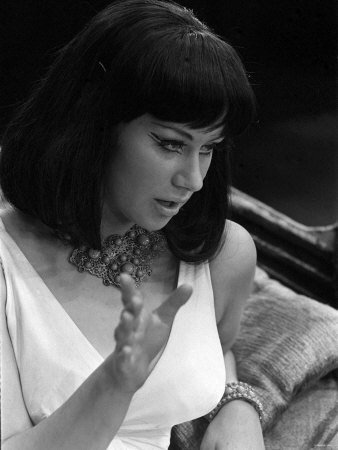
- HFPA
FROM THE ARCHIVES: HELEN MIRREN

by Jack Tewksbury For forty years the HFPA has recorded interviews with famous and celebrated actors, actresses and filmmakers. The world’s largest collection of its kind — over 10,000 interviews — is now in the Academy of Motion Pictures Arts & Sciences Library. The audios are fascinating. Below is an excerpt: in 2003, promoting her comedy Calendar Girls, six-time nominee and two-time Golden Globe winner Dame Helen Mirren reflected on her path as an actor, and what is the elusive essence of this complex craft. “What I think of as actors are those who have taken a certain imaginative leap. English and American actors do have a common cord, but there are big differences. American actors are much more outward, much less afraid of being emotional. For example, at an audition, English actors won’t read. If they’re given a script they’ll hold it close up, mumble, read stage directions, pretend they can’t read. American actors thump on the table, throw themselves on the ground. English actors find that very embarrassing. Another difference is that British actors work much more. We move easily between television, theatre, films. American actors tend to sit and wait for the big part. We like to work more often. And we’re paid much less.
In the first part of my career, I was extremely driven to become a great classical actress. In my
early twenties I was offered many film roles. I had opportunities to come to America, but I wanted to become the great classical actress, so I pursued that. It involved things such as leaving the classical theatre for a while and working with Peter Brook–who I believe is the greatest creative genius in the thertre today–because I thought it would further my abilities. I didn’t pursue money or fame. I pursued artistic ability. But doing classical theatre is like riding on a incredibly powerful, potentially uncontrollable horse. At first you try to control it, but then it is running away with you. But bit by bit, you learn to manage it. I was doing a performance as Cleopatra, about four years ago, and I suddenly realized I could ride this horse. Not only that, I could make it jump and stop and make it go backward, sideways,whatever. I could make it do anything! I had learned my craft. It was an interesting moment and so I thought, what shall I do next? And that happened just as I fell in love with someone who lived in America. On stage, your brain has to be working very hard. It has to be full of information because you are, after all, the director, the cameraman, everything for a particular moment. On stage you are basically in control. On film, you mustn’t think. You empty your mind. Which doesn’t mean you are stupid on film. It is very difficult to empty your mind. Anyone who has tried meditation knows that. In films you are, in a way, in a permanent state of re hearsal. On film you cannot let go of a character and neither can you afford to live it too strongly. I always find it a struggle and a painful process. I get very upset, very dark, when I am making a film. Ironically, when I have done a film and have been very happy and happy-go-lucky, it is rarely my best work. The parts I like are the ones that are mysterious, where the audience never understands what I am thinking about. Then again, it’s terribly painful to watch yourself. At least in the theatre, if you’re not very good that night, you’ve got tomorrow night. In a film it is terribly painful if you find yourself lacking. On the other hand, it is quite pleasurable to watch yourself and find yourself better than you thought.”



